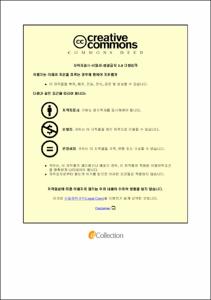국내 선박평형수처리설비 산업 육성을 위한 효과적인 지원정책 분석
- Abstract
- The International Maritime Organization (IMO) enacted the "Ballast Water Management Convention" in 2004 to reduce marine pollution, and after it came into effect in 2017, vessels operating between nations are obliged to equip BWMS. It was decided to install a water treatment device. Due to global climate change, emission regulations for water used on ships are being tightened every year. Since the market was formed in 2004, domestic manufacturer who makes Ballast water management system(BWMS) have maintained a market share of over 50%, but recently, fierce competition has continued due to the growth of multinational companies such as China and Europe. Most of the domestic companies concerned are composed of relatively small and medium-sized enterprises and carry out economic activities, so the environmental conditions are insufficient compared to large enterprises, and many support policies at the national level to make up for this.
In this study, in order to explore the case of support policy for companies in the domestic BWMS market and to present the direction of policy development, theoretical research and empirical research based on previous research were constructed in parallel. In the empirical analysis, AHP analysis was conducted by dividing companies that sell BWMS, small-scale companies that supply accessories to the BWMS companies, research institutes related to the industry, and classification. Among BWMS sales companies, technology development support is the most weighted, followed by financial support, sales channel support, productivity improvement support, and human resources support. In the case of small-scale companies that supply accessories to the BWMS companies, financial support is the largest weighted value, followed by technology development support, human resources support, sales channel support, and productivity improvement support. Research institutes related to the industry show weighted results in the same order as small-scale companies that supply accessories to the BWMS companies, and it is judged that policy research that can reduce the difference between BWMS sales companies and policy research institutes is necessary.
The purpose of this study is to present the policy direction of efficient cultivation of the Korean ship ballast water treatment equipment industry. Reflecting the policy recommendations presented based on the results of this analysis, it is expected that more efficient development policies will be established.
- Issued Date
- 2021
- Awarded Date
- 2021. 8
- Type
- Dissertation
- Publisher
- 부경대학교
- Affiliation
- 부경대학교 기술경영전문대학원
- Department
- 기술경영전문대학원 기술경영학과
- Advisor
- 이민규
- Table Of Contents
- Ⅰ. 서 론 1
1. 연구의 배경 및 필요성 1
2. 연구의 목적 5
3. 연구의 구성 6
Ⅱ. 현황분석 8
1. 선행연구 고찰 8
가. 정부지원정책 8
나. 선박평형수처리설비 산업 10
2. 중소기업 개요 12
가. 중소기업 정의 12
(1) 중소기업 법적 기준 13
(2) 중소기업 매출 기준 14
3. 관련 산업 개요 15
가. 조선기자재 산업 15
(1) 조선기자재 산업 정의 15
(2) 조선기자재 산업 분류 16
(3) 조선기자재 산업 현황 17
나. 선박평형수처리설비 산업 18
(1) 국내 선박평형수처리설비 적용 기술 (HS Code: 842121) 22
(가) 전기분해방식 22
(나) UV방식 22
(다) 오존방식 22
(2) 국내 선박평형수 처리장치 업체 현황 23
Ⅲ. 연구 방법론 25
1. 연구방법 25
2. AHP분석기법 26
가. AHP분석기법의 전제 27
나. AHP 분석과정 27
다. 가중치의 추정(Estimation of Relative Weight) 29
Ⅳ. 자료분석 32
1. 기술적 통계 32
가. 자료의 수집 및 표본 특성 32
2. AHP 분석 34
가. 계층모형의 설정 34
나. AHP 분석 결과(1단계) 35
다. 기업형태별 AHP 분석 결과(2단계) 36
라. 기업형태별 비교 단계에 대한 결과 분석 38
마. 기업-연구소간 각 단계에 대한 결과 분석 43
(1) 기업 형태별 그룹1(산업 내 기업) AHP 분석 결과 45
바. AHP 분석결과 시사점 51
Ⅴ. 결 론 57
1. 연구의 결과 및 시사점 57
2. 연구의 한계 및 향후 연구방향 62
참고문헌 63
부록 66
- Degree
- Master
- Files in This Item:
-
-
Download
 국내 선박평형수처리설비 산업 육성을 위한 효과적인 지원정책 분석.pdf
기타 데이터 / 1.18 MB / Adobe PDF
국내 선박평형수처리설비 산업 육성을 위한 효과적인 지원정책 분석.pdf
기타 데이터 / 1.18 MB / Adobe PDF
-
Items in Repository are protected by copyright, with all rights reserved, unless otherwise indicated.